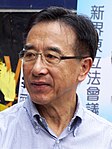| |||||||||||||||||||||||||||||||||||||||||||||||||||||||||||||||||||||||||||||||||||||||||||||||||||||||||||||||||||||||||||||||||||||||||||||||||||||||||
All 60 seats to the Legislative Council 31 seats needed for a majority | |||||||||||||||||||||||||||||||||||||||||||||||||||||||||||||||||||||||||||||||||||||||||||||||||||||||||||||||||||||||||||||||||||||||||||||||||||||||||
|---|---|---|---|---|---|---|---|---|---|---|---|---|---|---|---|---|---|---|---|---|---|---|---|---|---|---|---|---|---|---|---|---|---|---|---|---|---|---|---|---|---|---|---|---|---|---|---|---|---|---|---|---|---|---|---|---|---|---|---|---|---|---|---|---|---|---|---|---|---|---|---|---|---|---|---|---|---|---|---|---|---|---|---|---|---|---|---|---|---|---|---|---|---|---|---|---|---|---|---|---|---|---|---|---|---|---|---|---|---|---|---|---|---|---|---|---|---|---|---|---|---|---|---|---|---|---|---|---|---|---|---|---|---|---|---|---|---|---|---|---|---|---|---|---|---|---|---|---|---|---|---|---|---|
| Opinion polls | |||||||||||||||||||||||||||||||||||||||||||||||||||||||||||||||||||||||||||||||||||||||||||||||||||||||||||||||||||||||||||||||||||||||||||||||||||||||||
| Registered | 3,207,227 (GC) | ||||||||||||||||||||||||||||||||||||||||||||||||||||||||||||||||||||||||||||||||||||||||||||||||||||||||||||||||||||||||||||||||||||||||||||||||||||||||
| Turnout | 1,784,406 (55.64%) | ||||||||||||||||||||||||||||||||||||||||||||||||||||||||||||||||||||||||||||||||||||||||||||||||||||||||||||||||||||||||||||||||||||||||||||||||||||||||
| |||||||||||||||||||||||||||||||||||||||||||||||||||||||||||||||||||||||||||||||||||||||||||||||||||||||||||||||||||||||||||||||||||||||||||||||||||||||||
| |||||||||||||||||||||||||||||||||||||||||||||||||||||||||||||||||||||||||||||||||||||||||||||||||||||||||||||||||||||||||||||||||||||||||||||||||||||||||
The 2004 Hong Kong Legislative Council election was held on 12 September 2004 for members of the Legislative Council of Hong Kong (LegCo). The election returned 30 members from directly elected geographical constituencies and 30 members from functional constituencies, of which 11 were unopposed.
An unprecedented number of 3.2 million people registered to vote in the election. The turnout rate was an unprecedented 55.6% with 1,784,406 voters casting ballots, beating the previous record set in 1998 by 200,000 votes.[1] While pro-democratic opposition candidates gained new seats in the legislature, their gains fell short of their expectations.
In the geographical constituencies, candidates from the pro-democratic camp secured 60 percent of the seats in the geographical sectors of the election, taking 18 seats (up from 17) in this category, and 62 percent of the popular vote. On the other hand, the pro-Beijing and pro-business candidates made greater gains, winning 12 directly elected seats (up from 7). In the functional constituencies which the pro-democratic camp sought to abolish, the camp made more gains (from 5 to 7 seats).
Overall, the democrats took 25 seats and the pro-government camp 35 seats. Bills initiated by the government can still be passed on pro-government support alone, but bills originated by members cannot be passed without democratic support, since these bills require absolute majorities in each sector (geographical and functional) of the legislature.[2] Constitutional amendments require a two-thirds vote and thereby also require support from the democratic camp.
Despite the increase in the number of seats returned by geographical constituencies and the record turnout, the Democratic Party lost the status of being the largest political party in the Legislative Council to the pro-government Democratic Alliance for Betterment of Hong Kong, DAB, who secured 12 seats if including the two members who ran under the banner of the Hong Kong Federation of Trade Unions, and pro-business Liberal Party who secured 10 seats, thereby becoming only the third-largest party. Some attributed the poor performance of the pro-democratic camp to tactical miscalculation in vote allocation. This was not helped by some of the democratic parties' personal scandals.
The pro-Beijing and pro-business parties succeeded in retaining the majority in the legislature. However, pro-democracy candidates have maintained the threshold to block changes, if necessary, to the Basic Law of Hong Kong, since a two-thirds vote is required for amendment. The current Legislative Council also saw the entry of more radical members of the democratic camp.









